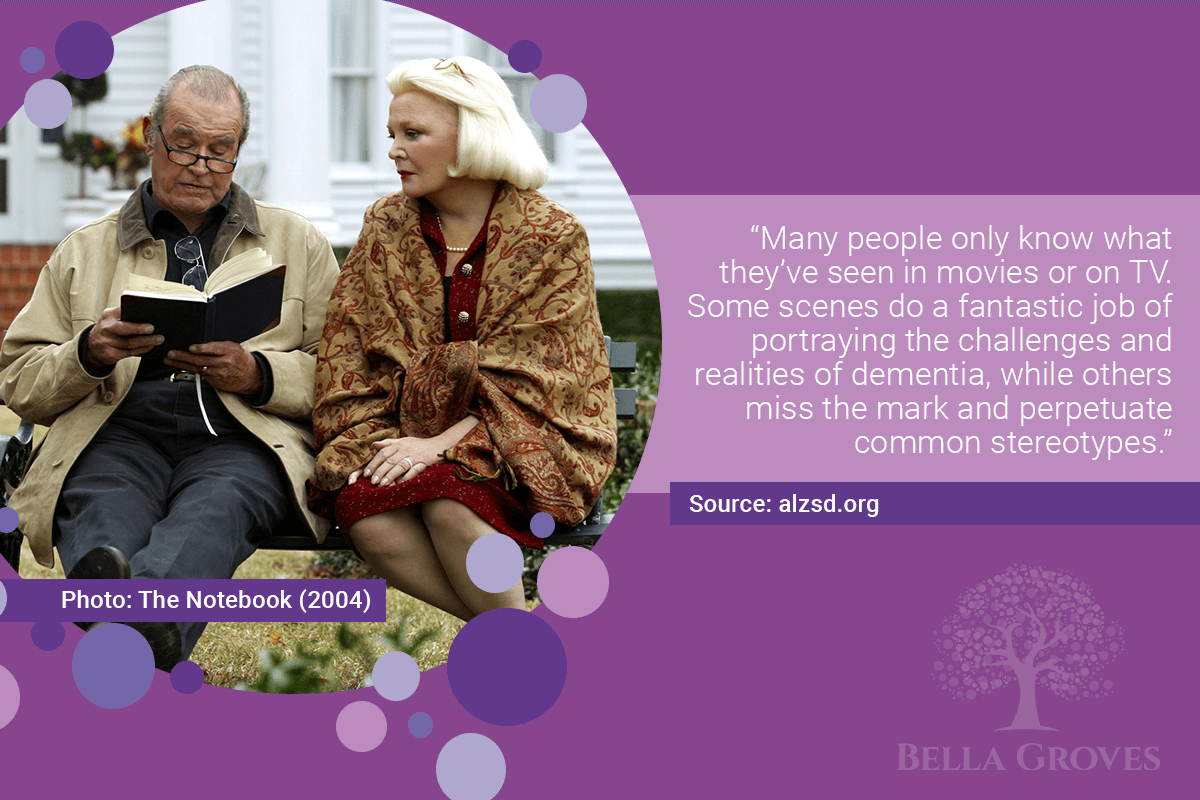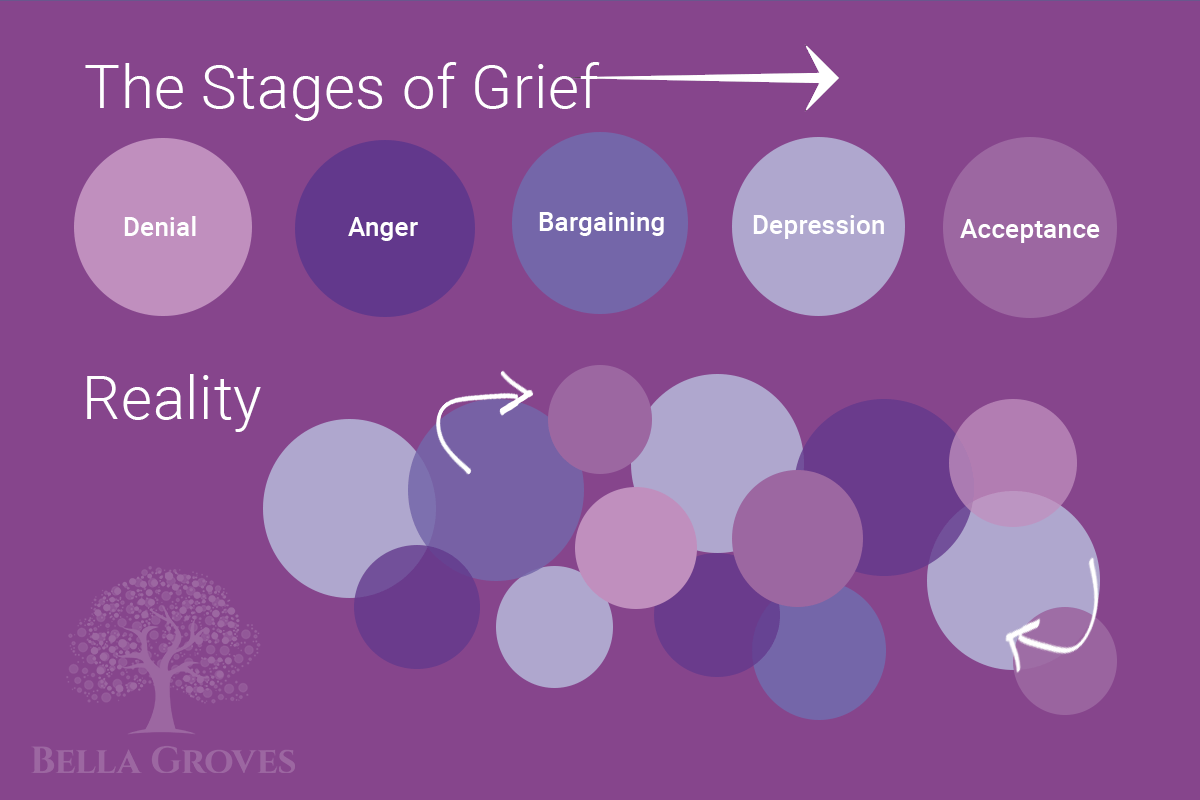
What the Media Gets Wrong: Understanding Dementia Through Film
According to the World Health Organization, over 55 million people worldwide live with dementia. However, dementia still retains a stigma that draws from the unknown aspects of the condition.
It’s difficult to trace the origins of this stigma. Perhaps it stems from a fear of uncertainty since there is no known cure or progressive form of treatment that targets dementia. Unfortuantely, portrayals of people living with dementia in the media, most commonly in movies and television, don’t seem to alleviate the stigma any further. When it comes to understanding dementia, many character performances make it difficult for audiences to grasp the reality of the condition.
Dr. Karen Harrison Dening is the head of research and publication at Dementia UK and served as an advisor on the set of Elizabeth is Missing (2019), a TV-movie based on the popular book.
According to Dr. Harrison Dening, “It’s difficult to represent dementia on screen because it’s hard to get a true user perspective of what it’s like. We have to assume or interpret.”
Being such a stigmatized condition, comprehensive dementia resources come from self-education, especially when someone we know has been diagnosed. But where does that leave those whose families are not impacted by dementia? They are led to believe the overdramatized moments of dementia the media so often portrays.
Dramatizations and Plotlines
How Dementia is Portrayed in Popular Films
In general, many people associate dementia solely with memory loss and tend to overlook the other symptoms that come with it. This is the most common trope seen in media portrayals of dementia.
For instance, in the 2004 film The Notebook, based on the Nicholas Sparks novel of the same name, the plot is told through flashbacks that show the love story of the two main characters, Noah and Allie. In the present day, the two characters are older adults, and Noah is reading the story to Allie, who is living with Alzheimer’s disease and resides at a care community.
There are many scenes that portray dementia in a glamorized light. At one point, after Noah has finished reading the story to Allie, she abruptly remembers everything perfectly and she and Noah share an intimate moment as they reminisce. However, the moment is short-lived, as almost seconds later, Allie becomes confused and frantic as she doesn’t recognize Noah.
In reality, a person living with dementia might have moments of clarity and moments of disorientation and confusion, but they are not as quick and drastic as shown in The Notebook. Showing old photos and sharing memories is a great way to engage someone living with dementia. Still, it needs to be noted that abrupt moments of clarity and recognition are not common. While they might show signs of interest and remember certain details or information, it is not guaranteed they will instantly “snap back” to their past personality.
It’s portrayals like these that have perpetuated harmful stereotypes about the symptoms and realities of those living with dementia. Filmmakers and screenwriters should be held somewhat responsible for lack of research, understanding, and communication with people who understand the challenges, care, and symptoms of dementia when making movies that unrealistically portray the condition.
While there’s certainly nothing wrong with enjoying the plot of a movie, it’s important to note that films that amplify these stereotypes should not be used as dementia resources. Instead, for a better understanding of dementia and how it affects individuals and families, find educational resources that pull information from science, real-life examples, and healthcare providers.
Honest Portrayals
The Father (2020)
The recent film The Father (2020), starring Anthony Hopkins and Olivia Colman, has been praised by critics and moviegoers. Not only are Hopkins and Colman highly talented actors, but they portray two realistic sides of dementia that the media often overlooks: the point of view of a person living with dementia, and the relationship of a care partner to that person.
The main character, Anthony (Hopkins), begins struggling amidst the progressing symptoms of dementia. His daughter, Anne (Colman), visits often and attempts to find the best situation for her father as the condition progresses.
Throughout the plot, director Florian Zeller shows a fairly realistic image of what it’s like to live with dementia, and how it can affect relationships with those who are closest to you. Zeller also does a great job at portraying Anthony’s point of view, using different locations and different actors (playing his daughter and nurses) to give audiences a visual idea of the disorientation that can occur in many cases of dementia; the inability to recognize loved ones or understand current locations.
Still Alice (2014)
Another honest portrayal of dementia can be seen in the movie Still Alice (2014), based on The New York Times best-selling book by Lisa Genova. The story follows Alice Howland (played by Julianne Moore), a 50-year-old cognitive psychology professor at Harvard University and world-renowned linguistics expert who is diagnosed with early-onset Alzheimer’s disease. Unlike many media portrayals of dementia, Still Alice is told from the point of view of the person living with dementia; not those around her.
In addition, both the book and movie showcase honest moments of how dementia impacts a person’s daily life. For example, at one point, Alice becomes disoriented in the family’s summer home, cannot find the bathroom, and, as a result, has an episode of incontinence. While this might not be a daily occurrence, it shows how dementia impacts more than a person’s ability to recognize faces or recall memories.
Of course, every journey with dementia is different. While these films do a wonderful job of portraying dementia in a realistic light, we know these portrayals may not mirror the journey of you or your family. However, we think more of these examples can help those not impacted by dementia better understand its symptoms and how it affects individuals and families.
As the global population ages at a rapid rate, it’s estimated that by 2050 the number of dementia cases will rise from 55 million to around 150 million (World Health Organization). Understanding dementia and supporting those impacted is crucial; we need to educate ourselves and those around us to diminish the harmful stereotypes we often see in our favorite forms of entertainment.
At Bella Groves, we are committed to being your partner and resource throughout your journey with dementia. For more dementia resources and access to our library of educational materials, we encourage you to visit our website.


